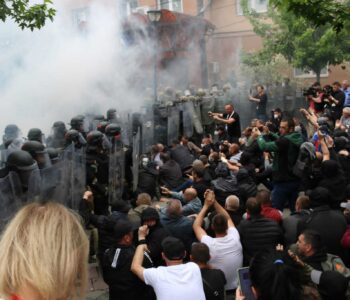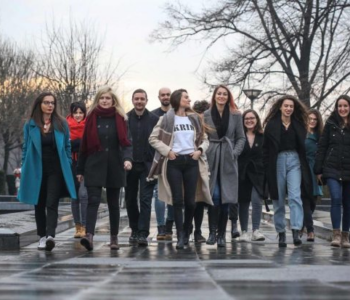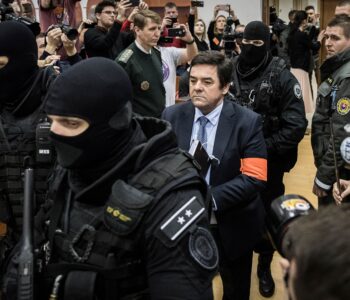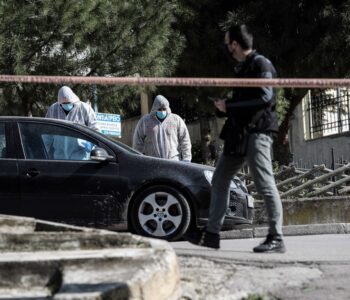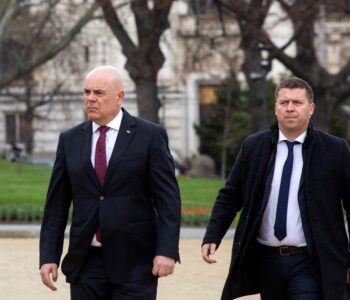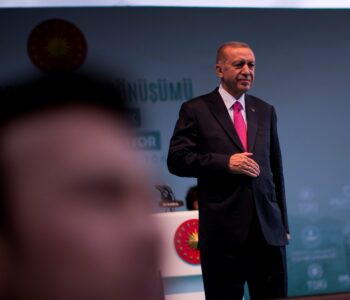Ahead of World Press Freedom Day on May 3, our shared conclusion is that 24 years after the murder of Ćuruvija in 1999, poor conditions for the safety of journalists, the weak landscape for the rule of law, media capture and a festering climate of hostility towards critical reporting mean that the likelihood of a serious physical attack on a journalist remains a possibility. Independent journalism in Serbia continues to face a period of crisis.
The dedicated work being done by some stakeholders to prosecute attacks on journalists is being undermined by the wider climate of hostility being generated by leading politicians in Serbia. Until this is addressed and the public discourse regarding critical journalism is normalised, tangible progress will remain elusive.
These conclusions come after multiple meetings with independent journalists and editors, media associations and unions, the Standing Working Group for the Safety of Journalists, which included a representative of the Ministry of Interior.
Serbia exhibits a unique situation in which insults and attempts to discredit watchdog journalism stem overwhelmingly from leading politicians, including the President Aleksandar Vučić, Prime Minister Ana Brnabić and ruling party MPs. Our assessment is that Serbia is one of the EU candidate states where journalists face the strongest verbal pressure and attacks from the state leadership. Critical and investigative journalism is still viewed by many public officials as an unpatriotic threat to be fought, rather than a healthy and necessary part of the country’s democratic fabric.
This failure of the political class to accept and respect the role of critical journalism is dangerous. Smears launched by political figures are routinely picked up and reported by a network of tabloid media outlets owned by allies of the government who amplify the messaging, fomenting distrust and hatred against certain journalists. This behaviour by politicians normalises hostility towards independent media and, in many cases, acts as a signpost for physical as well as online threats by non-state actors.
It is no surprise that Serbia remains one of the most dangerous places in Europe, outside of Ukraine, to work as a journalist. In 2022, the Independent Journalists’ Association of Serbia (IJAS) documented 137 violations: 34 verbal threats, nine physical attacks, four attacks on property and 84 different attempts to pressure the media. Until the end of March 2023, 33 serious incidents were recorded: eight verbal attacks, three physical attacks and 22 acts of pressure on media and journalists. Investigative journalists probing high level crime and corruption are particularly at risk and are demonised as foreign mercenaries and national traitors.
While multiple state-backed initiatives have been launched to address the safety of journalists, their effectiveness is undermined by political attacks on journalists which compromise authorities’ efforts. The Standing Working Group on the Safety of Journalists, established in 2016, is an important initiative and a platform for the exchange of information between law enforcement authorities and media, allowing more systematic monitoring. The prosecutor’s office has established a network of dedicated contact points across Serbia which must act quickly in cases of threats. The 24/7 toll-free SOS helpline for journalists whose safety is threatened represents an important instrument for quick responses, along with networking of competent institutions and offering assistance to endangered journalists. In a welcome development, the number of physical attacks recorded in 2022 dropped compared to the previous year.
However, while law enforcement authorities have increasingly identified alleged perpetrators and brought indictments, justice has proven much harder to secure. In 2022, 81 criminal reports were submitted to the public prosecutor’s offices, yet just five convictions were reached. Though certain investigations have faced legitimate barriers in securing evidence, in some cases journalists complain that serious threats are assessed by prosecutors as not meeting the threshold of criminal offences. As of March 2023, 41,96% of cases submitted to the prosecutor’s office were dismissed for this reason. Journalists also raised concerns that politically sensitive cases, including attacks involving members of the ruling party, were not addressed appropriately. While the Standing Working Group functions adequately on paper and stakeholders are committed to its success, its work is undermined by a lack of political will and the wider climate of hostility. The separate Working Group for Security and Protection of Journalists, established in December 2020 with the backing of the Prime Minister, has been a failure.
On the other hand, the Commission for the Investigation of Murders of Journalists is another important initiative and has been fundamental in the fight for justice for Slavko Ćuruvija. Despite progress in the investigation of the Police Working Group within the Commission in identifying possible killers, the Prosecutor’s Office for Organized Crime continues to hesitate on taking over the investigation into the murder of journalist Milan Pantić, while the mysterious death of Dada Vujasnović remains unsolved.
Despite the many challenges, there are some positive developments this year. The March 2023 retrial verdict sentencing perpetrators including a former Belgrade (Grocka municipality) president to five years in prison for the arson attack on the home of journalist Milan Jovanovic is a welcome victory. With an appeal underway, however, justice for this attack has not yet been secured. Swift indictments and prosecutions in early 2023 for the threats made against journalists at OK Radio by a powerful businessman in Vranje were positive. The recent sentencing to one year of house arrest to a man who issued appalling death threats against TV Nova S journalist Jelena Obućina is also a welcome development. However, the willingness and ability to effectively prosecute such attacks appear to extend only to cases where there was political pressure or where the alleged perpetrators lack political connections, indicating a lack of independence of law enforcement bodies.
At the wider level, however, no progress has been made in strengthening the landscape for media freedom and freedom of expression. Media pluralism remains particularly weak, with independent broadcast media systematically disadvantaged in the market. The clearest example was the controversial decision in July 2022 by the Regulatory Body for Electronic Media (REM) to again award all four national frequencies to pro-government television channels, overlooking applications by independent media houses. A fifth licence has yet to be allocated. The REM continues to display a lack of functional independence and has failed to carry out its duty of sanctioning violations of broadcast law by private channels close to the government. Delays continue in the long-overdue reform of the law on public information and media and the law on electronic media.
The public broadcaster continues to suffer from a lack of editorial independence and displays clear bias in its programming and reporting in favour of the government. State advertising – which has for years been the largest advertiser in media – also continues to be distributed in an arbitrary and non-transparent manner, largely in favour of pro-government media outlets. Rather than being disqualified from the co-financing program for regular violations of journalistic ethics, as identified by the Press Council, tabloid media continue to receive large amounts of public money. This use of state resources is one of the prime levers for the government to co-opt and control media coverage. While the direct ownership of private media by the state is banned, the purchase by state-owned and controlled Telekom Srbija of multiple media assets in recent years has established an indirect state ownership model. This is a prime example of media capture in Serbia. Taken together, these developments have cemented a pro-government narrative at the expense of independent journalism.
In addition to physical threats, independent media also face numerous legal challenges. Investigative platforms such as KRIK are being buried under an avalanche of vexatious lawsuits, both civil and criminal, meaning they are forced to dedicate valuable time and money to defending themselves in court. While the courts have recently thrown out clearly vexatious lawsuits, Serbia continues to be one of the worst countries in Europe for Strategic lawsuits against public participation (SLAPPs) and the number of documented cases is on the rise. Plaintiffs are most commonly public officials, politicians, businesspeople and companies. A recent case involving two SLAPP cases initiated against BIRN by the mayor of Belgrade is a prime example.
Overall, media freedom in Serbia remains in a poor condition. No one has yet been ultimately found guilty of the murder of a journalist. The climate of threats against journalists is at its worst point in many years. Media pluralism continues to be weak, with the ruling party overseeing a captured media ecosystem. The shared view of our international organisations is that, while important work on effectively prosecuting attacks on journalists has had a positive impact, this progress has been undermined by engrained challenges in ultimately securing justice and the wider climate of hostility towards critical journalism being fostered by political leaders. On balance, these combined factors mean Serbia continues to be held back in its commitments to improve media freedom as part of the EU accession process. We therefore recognise no overall progress since the fact-finding mission of the MFRR in April 2021.
This status quo must not continue. It is vital that the international community recognise the seriousness of the current situation for independent journalism in Serbia. In the coming months, our organisations will be giving as many platforms as possible to independent Serbian journalists to share their experiences first hand. International pressure will be central to enacting positive change. We therefore call on the European Union to ensure that media freedom in Serbia is a priority in the context of the rule of law and democracy. We also urge EU leaders and officials to urgently raise the issue of pressure on journalists by high-ranking politicians during meetings with Serbian officials. Future progress reports on EU accession should fully reflect the seriousness of the situation and outline for meaningful reforms. International bodies such as the OSCE and the Council of Europe must continue to address these issues head on. The upcoming report by the UN Special Rapporteur on freedom of opinion and expression following her mission to the country should be forceful in its assessment of the situation.
Twenty-four years after the murder of Slavko Ćuruvija, the conditions for the safety of journalists in Serbia are alarmingly reminiscent of the period in which he was killed. The upcoming appeal court verdict for the murder will be the most consequential for media freedom and journalism in decades, and will act as a litmus test for the rule of law and democracy more widely. If guilty verdicts are secured, we hope this can act as a catalyst for concrete change moving forward. Our international press freedom and journalists’ organisations will do all we can to support free and independent journalism during this time.
- The challenges facing independent journalism in Serbia will be discussed in an upcoming MFRR webinar on May 3. Register here.
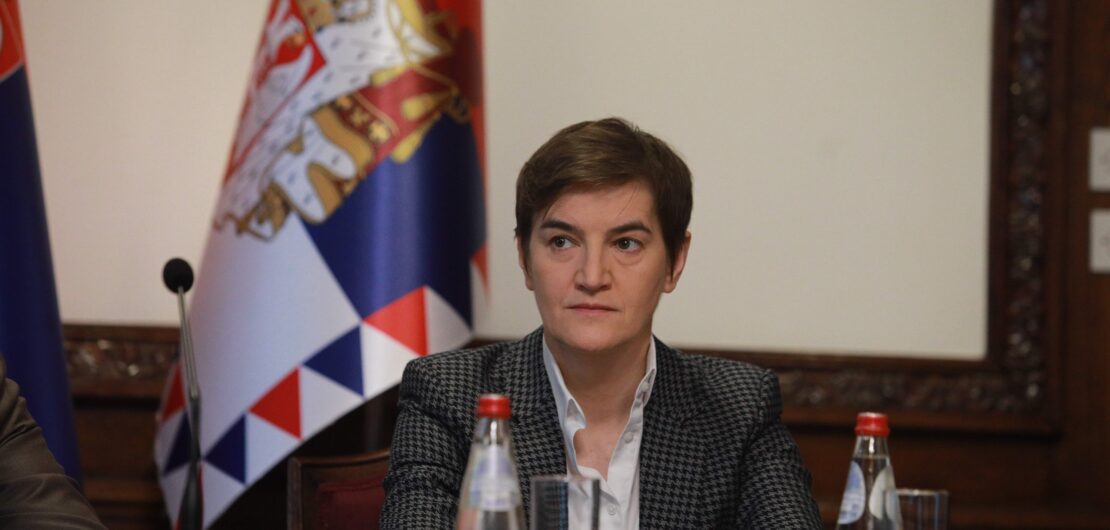 Library
Library


